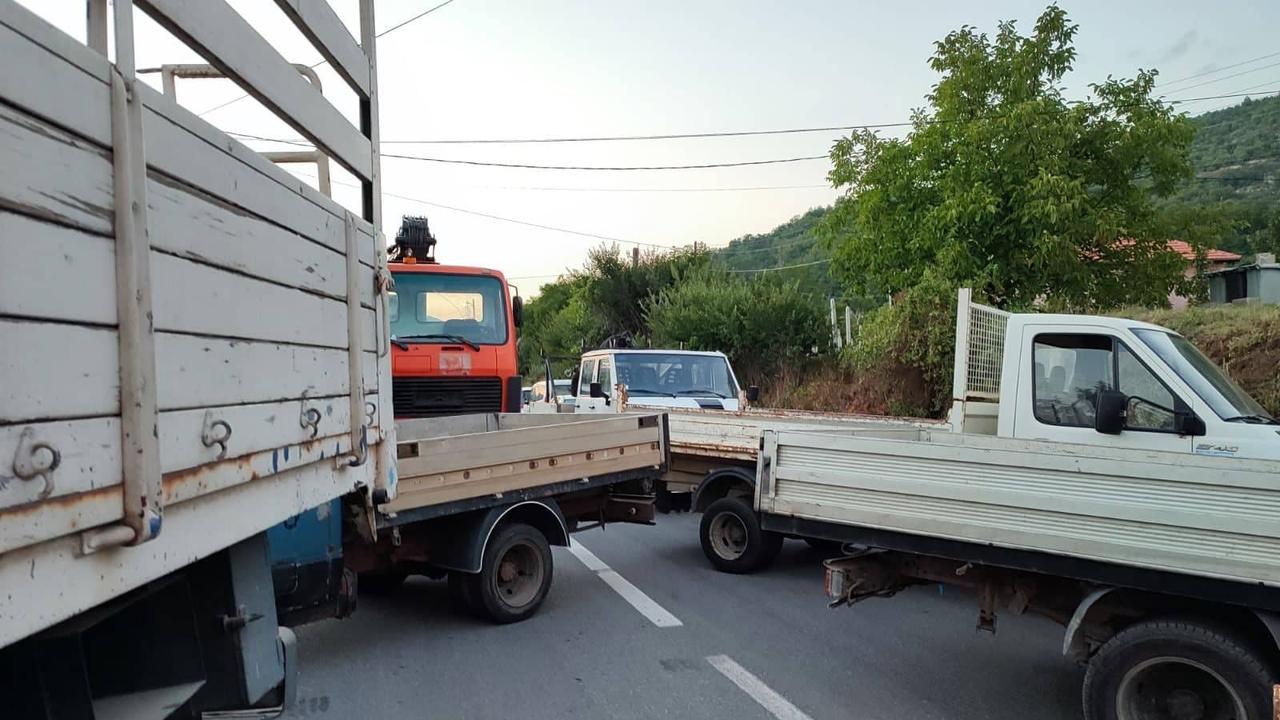Kosovo police closed two border crossings with Serbia in the north of the country due to the unrest. Demonstrators closed the Yaringi and Brncak crossings with trucks. The police reported that shots were fired at the Kosovo police. No one is hurt.
The siren sounded for three hours in the northern town of Mitrovica. The border crossings were closed with trucks loaded with gravel and heavy machinery.
The unrest is linked to new rules that will apply since midnight to Serbs living in Kosovo. They will have 60 days from Monday to put Kosovo number plates on their cars. All Serbian citizens visiting Kosovo will have to request an additional document from Monday at the border in order to be able to enter the country. Similar rules apply to Kosovo in Serbia.
In 2008, Kosovo became independent from Serbia. About 50,000 Serbs live in northern Kosovo and still use Serbian license plates and documents. Kosovo is recognized as an independent state by more than 100 countries, but not by Serbia and Russia.
Because of the unrest, the Kosovo government has now decided to postpone the implementation of the rules for a month. This came at the initiative of the European Union and the United States, who mediated on Sunday evening.
We welcome Kosovo’s decision to move the procedures to September 1. Expect all roadblocks to be removed immediately. Open issues should be addressed through EU-facilitated dialogue and focus on the comprehensive normalization of Kosovo-Serbia relations, which is essential for EU integration pathways.
- symbol picture

- author
- Josep Borrell
- places moment
Issuance of sensitive number plates
This is not the first time that there has been unrest around the number plates. Kosovo Prime Minister Albin Kurti also wanted this to end last year, but then canceled that decision due to protests. Then demonstrations broke out at the same border crossings. Kosovo subsequently deployed special police forces and Serbia deployed warplanes along the border.
The United Nations peacekeeping force in Kosovo (KFOR), led by NATO, described the situation in the north of the country as tense. The peacekeeping force also says it is “ready to intervene if stability is threatened,” in line with the “UN mandate”.
The peacekeeping force was established in 1999. Currently, 28 countries are participating, and there are still 4,000 military and civilian personnel working to maintain peace.
A Russian Foreign Ministry spokesman blamed the tensions on the Kosovo authorities for imposing “unfounded and discriminatory rules” on Serbs. “We call on Pristina (the capital of Kosovo, ed.), the United States and the European Union to stop provocations and respect the rights of Serbs in Kosovo,” the spokesperson wrote on Telegram.

Zombie specialist. Friendly twitter guru. Internet buff. Organizer. Coffee trailblazer. Lifelong problem solver. Certified travel enthusiast. Alcohol geek.

